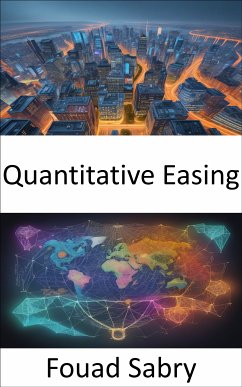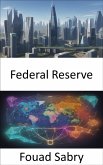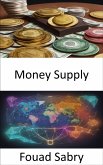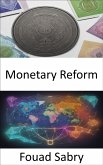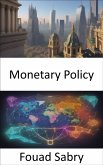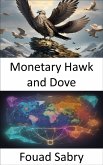What is Quantitative Easing
Quantitative easing (QE) is a monetary policy action where a central bank purchases predetermined amounts of government bonds or other financial assets in order to stimulate economic activity. Quantitative easing is a novel form of monetary policy that came into wide application after the financial crisis of 2007-2008. It is used to mitigate an economic recession when inflation is very low or negative, making standard monetary policy ineffective. Quantitative tightening (QT) does the opposite, where for monetary policy reasons, a central bank sells off some portion of its holdings of government bonds or other financial assets.
How you will benefit
(I) Insights, and validations about the following topics:
Chapter 1: Quantitative easing
Chapter 2: Central bank
Chapter 3: European Central Bank
Chapter 4: Monetary policy of the United States
Chapter 5: Monetary policy
Chapter 6: Monetary base
Chapter 7: Open market operation
Chapter 8: Monetary Policy Committee (United Kingdom)
Chapter 9: Money creation
Chapter 10: Debt monetization
Chapter 11: Helicopter money
Chapter 12: Bank of Canada
Chapter 13: Modern monetary theory
Chapter 14: History of Federal Open Market Committee actions
Chapter 15: James B. Bullard
Chapter 16: Federal Reserve responses to the subprime crisis
Chapter 17: 1994 bond market crisis
Chapter 18: Quantitative tightening
Chapter 19: Corporate debt bubble
Chapter 20: The Intervention of ECB in the Eurozone Crisis
Chapter 21: Yield Curve Control
(II) Answering the public top questions about quantitative easing.
(III) Real world examples for the usage of quantitative easing in many fields.
Who this book is for
Professionals, undergraduate and graduate students, enthusiasts, hobbyists, and those who want to go beyond basic knowledge or information for any kind of Quantitative Easing.
Quantitative easing (QE) is a monetary policy action where a central bank purchases predetermined amounts of government bonds or other financial assets in order to stimulate economic activity. Quantitative easing is a novel form of monetary policy that came into wide application after the financial crisis of 2007-2008. It is used to mitigate an economic recession when inflation is very low or negative, making standard monetary policy ineffective. Quantitative tightening (QT) does the opposite, where for monetary policy reasons, a central bank sells off some portion of its holdings of government bonds or other financial assets.
How you will benefit
(I) Insights, and validations about the following topics:
Chapter 1: Quantitative easing
Chapter 2: Central bank
Chapter 3: European Central Bank
Chapter 4: Monetary policy of the United States
Chapter 5: Monetary policy
Chapter 6: Monetary base
Chapter 7: Open market operation
Chapter 8: Monetary Policy Committee (United Kingdom)
Chapter 9: Money creation
Chapter 10: Debt monetization
Chapter 11: Helicopter money
Chapter 12: Bank of Canada
Chapter 13: Modern monetary theory
Chapter 14: History of Federal Open Market Committee actions
Chapter 15: James B. Bullard
Chapter 16: Federal Reserve responses to the subprime crisis
Chapter 17: 1994 bond market crisis
Chapter 18: Quantitative tightening
Chapter 19: Corporate debt bubble
Chapter 20: The Intervention of ECB in the Eurozone Crisis
Chapter 21: Yield Curve Control
(II) Answering the public top questions about quantitative easing.
(III) Real world examples for the usage of quantitative easing in many fields.
Who this book is for
Professionals, undergraduate and graduate students, enthusiasts, hobbyists, and those who want to go beyond basic knowledge or information for any kind of Quantitative Easing.
Dieser Download kann aus rechtlichen Gründen nur mit Rechnungsadresse in A, B, BG, CY, CZ, D, DK, EW, E, FIN, F, GR, H, IRL, I, LT, L, LR, M, NL, PL, P, R, S, SLO, SK ausgeliefert werden.

